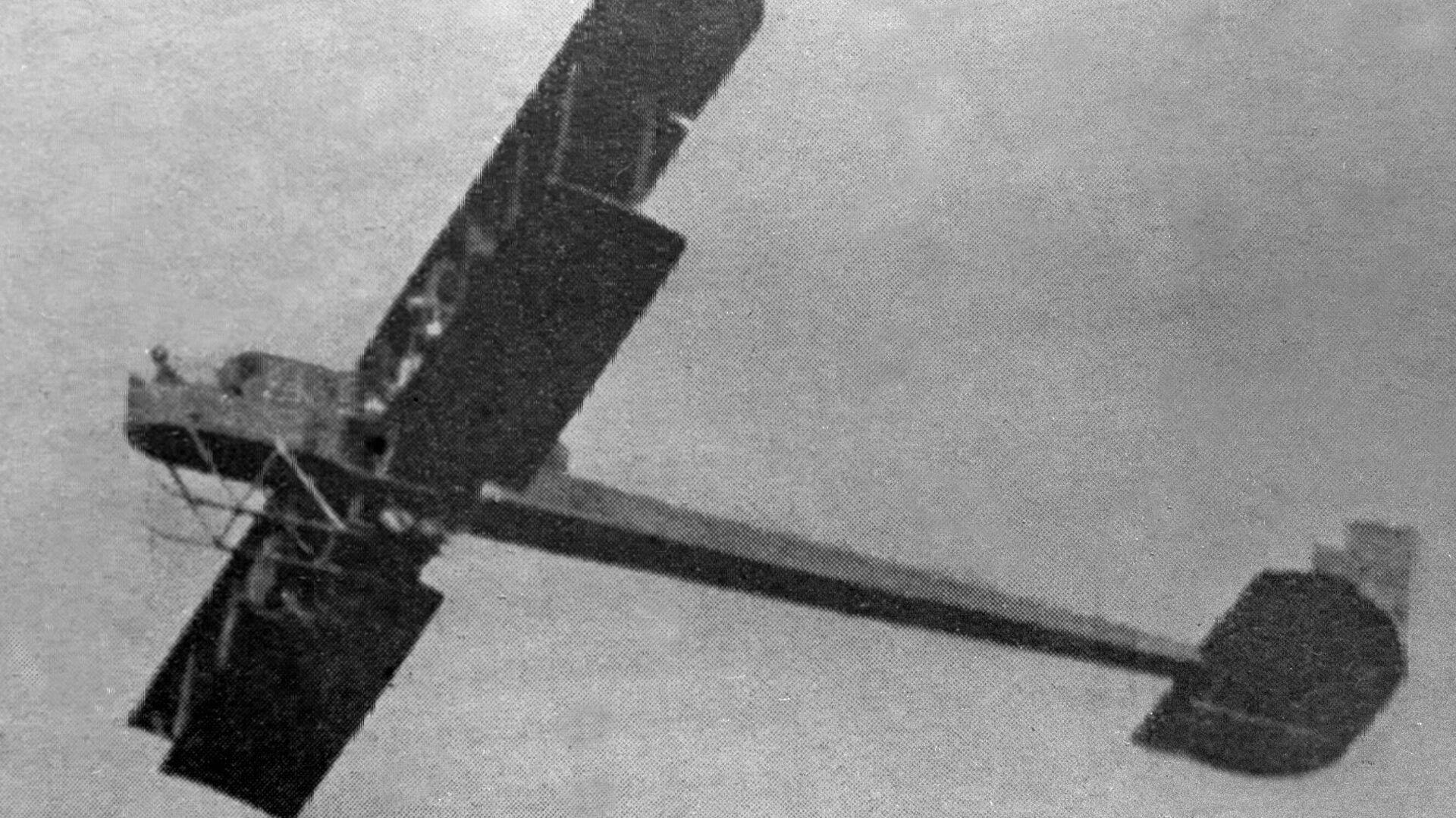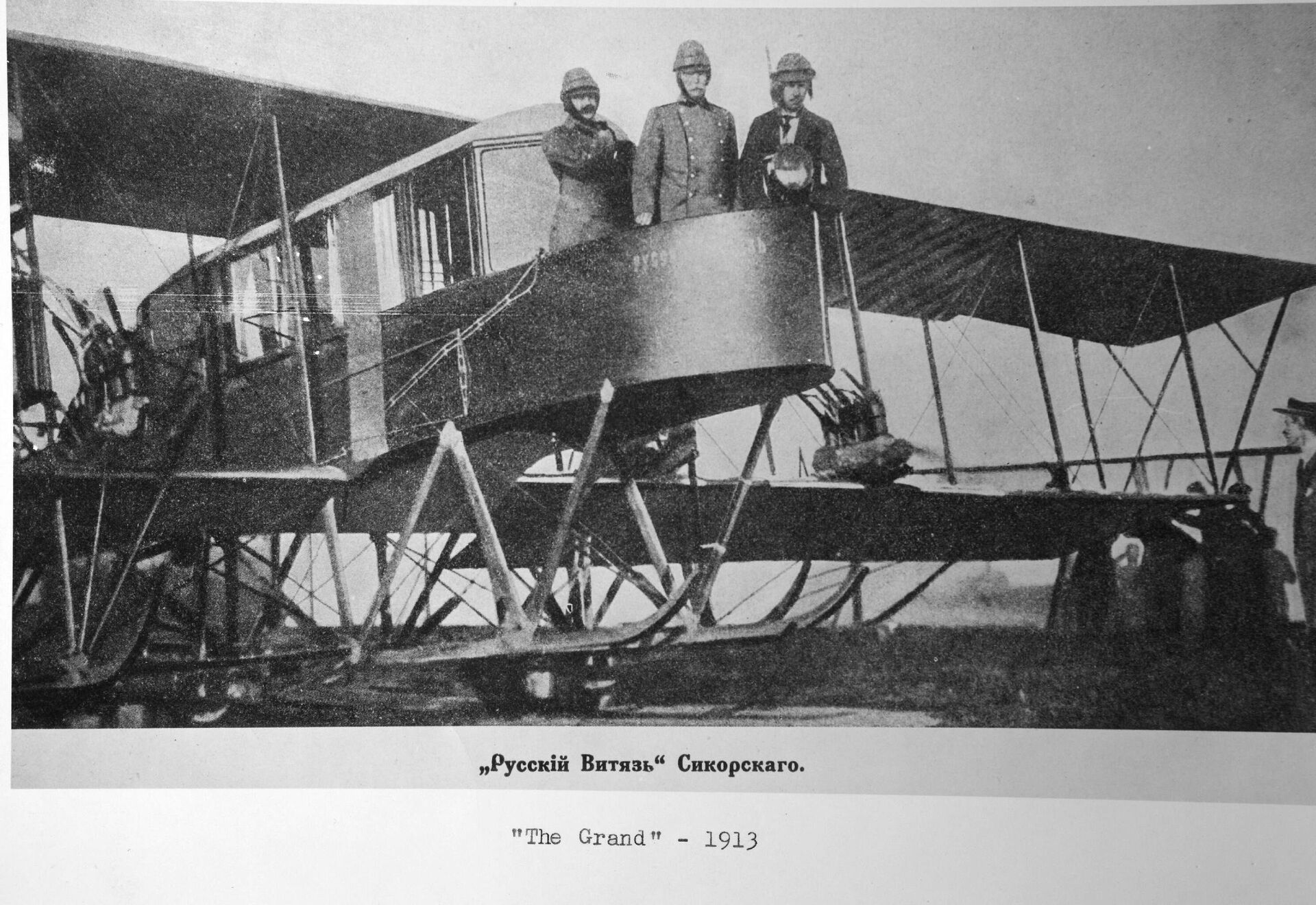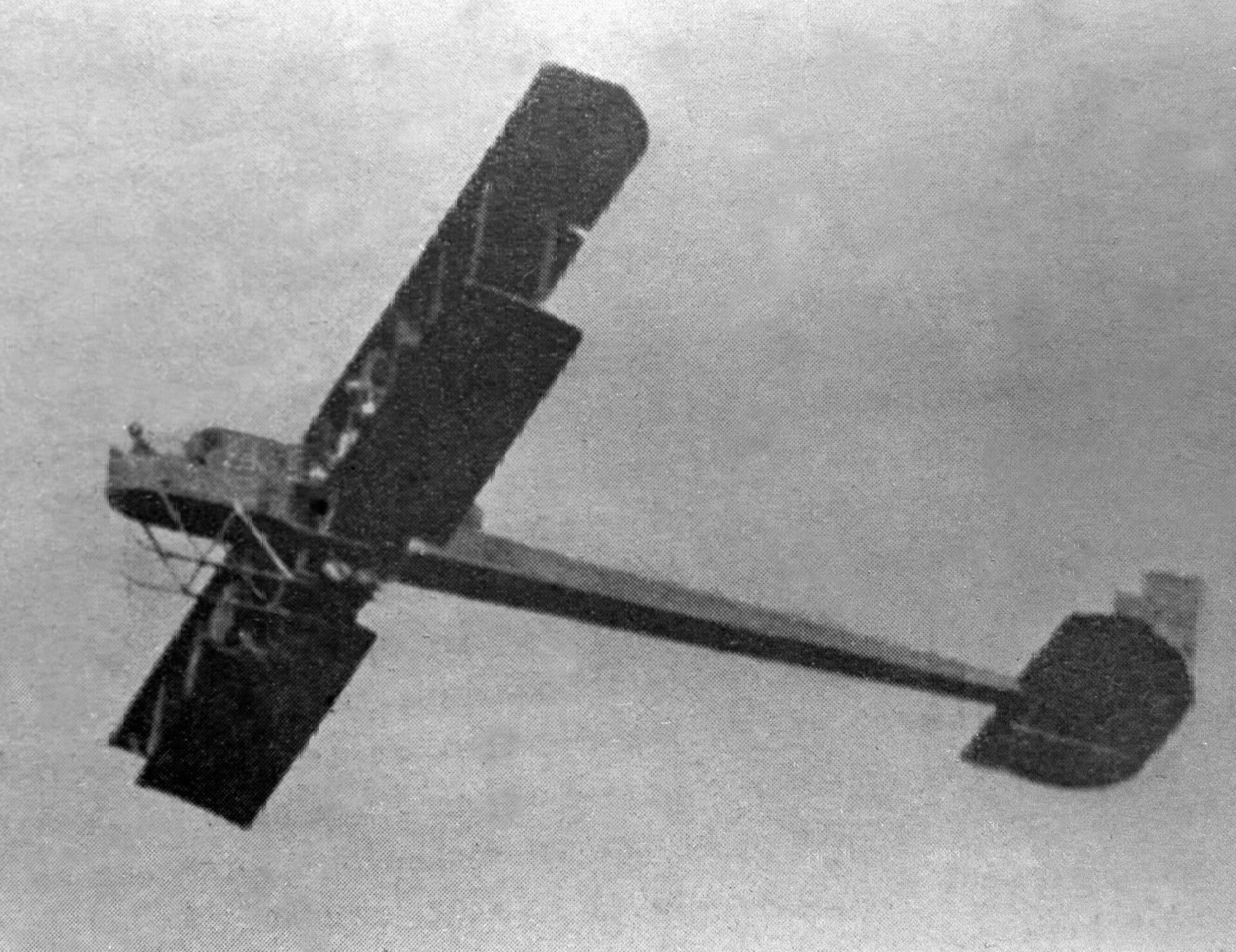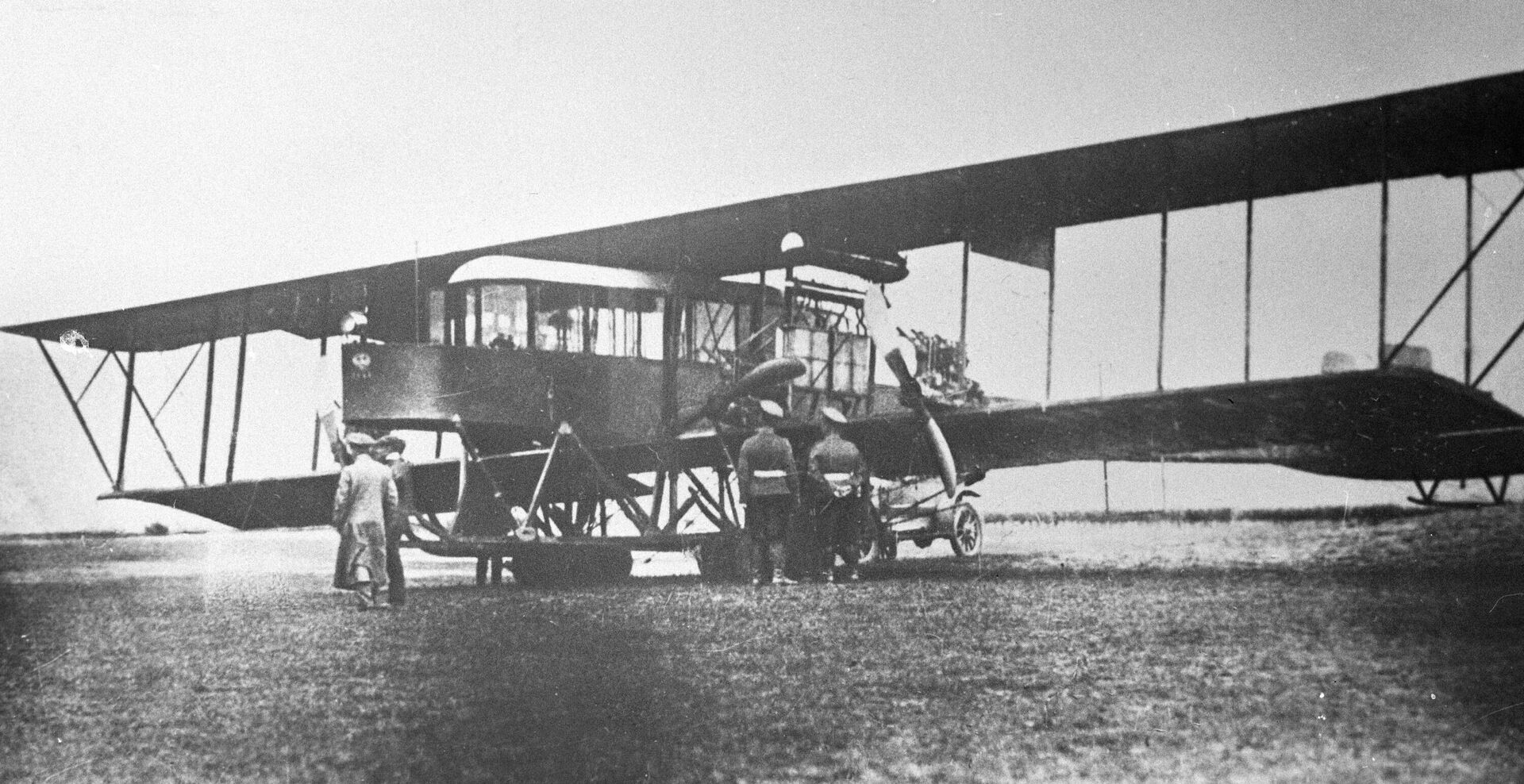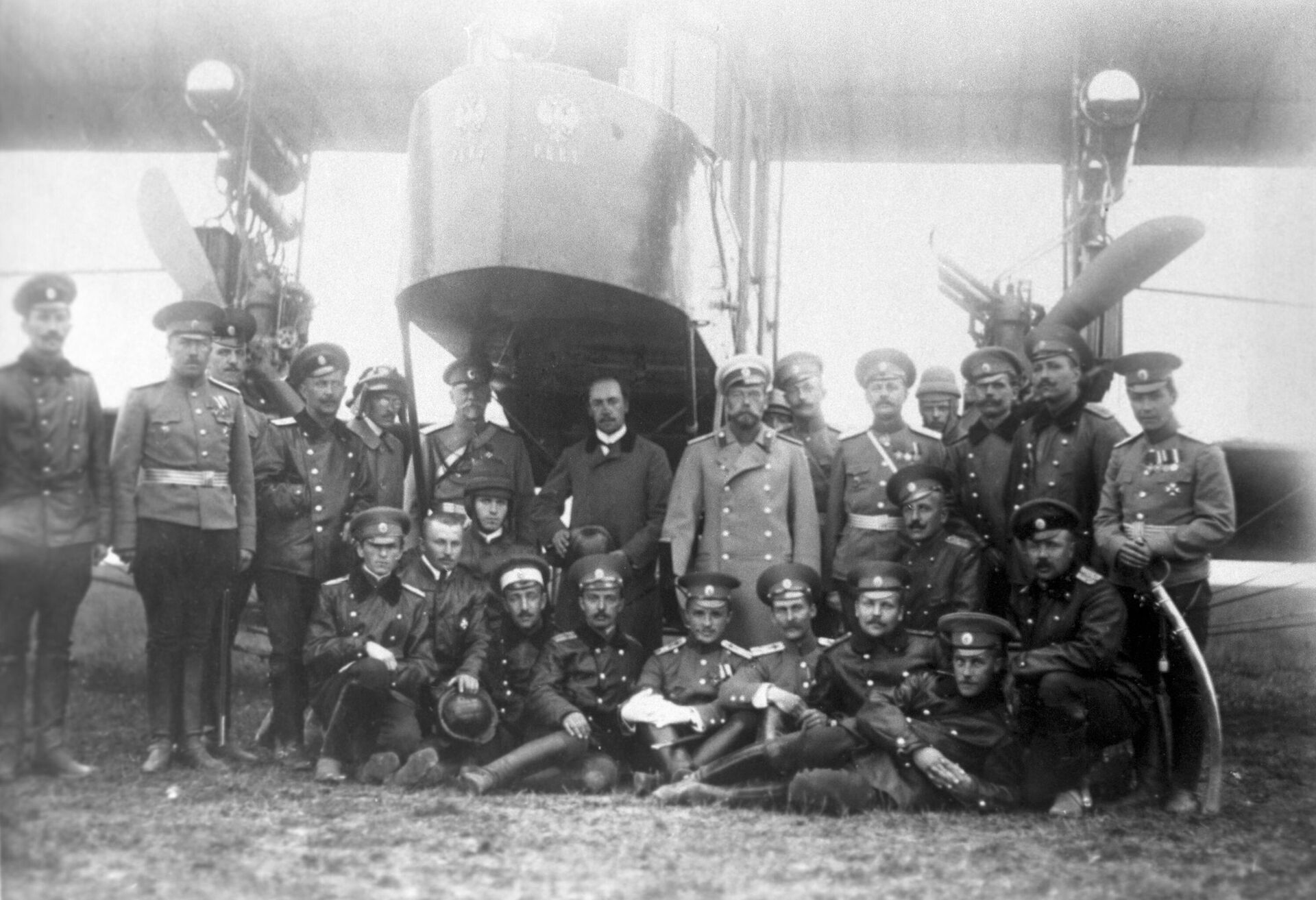https://sputnikglobe.com/20230527/the-russian-knight-110th-anniversary-of-maiden-flight-of-worlds-first-four-engine-aircraft-1110635888.html
The Russian Knight: 110th Anniversary of Maiden Flight of World's First Four-Engine Aircraft
The Russian Knight: 110th Anniversary of Maiden Flight of World's First Four-Engine Aircraft
Sputnik International
The first-of-its-kind aircraft, built and designed in Russia, made its maiden flight in May 1913, reaching a speed of 100 kilometers per second and an altitude of about 100 meters.
2023-05-27T13:59+0000
2023-05-27T13:59+0000
2023-05-27T14:32+0000
beyond politics
russia
plane
flight
history
https://cdn1.img.sputnikglobe.com/img/07e7/05/1b/1110636025_0:277:2658:1772_1920x0_80_0_0_ea4e851765193d461b80b50684a86c64.jpg
110 years ago, the first-ever four engine aircraft, designed by famous Russian aviation pioneer Igor Sikorsky, performed its first flight in Russia.Named “Le Grand” during the early stages of the development, this biplane aircraft later had its name changed to Bolshoi Baltiyskiy (The Big/Great Baltic), a reference to the Russian Baltic Railroad Car Works where the plane was being built.The aircraft looked like a true giant when compared to the single-engine biplanes of its time.A massive contraption powered by four 100 hp Argus As engines made in Germany, Sikorsky’s creation was 20 meters long and 4 meters high, with the plane’s upper and lower wingspan being 27 and 20 meters respectively.The plane, whose gross weight reached 4 metric tons, had a crew complement of three.During its maiden flight on May 27, 1913, the plane, piloted by Sikorsky himself, took off from the Corpusny Airfield in St. Petersburg and reached an altitude of about 100 meters. The plane then performed several maneuvers under the watchful gazes of a crowd of spectators, before landing safely.Sikorsky’s accomplishment was celebrated by the Russian public, with the plane’s name soon being changed to Russky Vityaz (Russian Knight), which was apparently deemed more suitable for a symbol of Russian national pride the aircraft had become at the time.Russian Emperor Nicholas II himself took interest in Sikorsky’s creation and personally inspected the plane. The emperor was apparently pleased with what he saw and Sikorsky was later awarded with a golden watch – a gift from His Imperial Majesty.
russia
Sputnik International
feedback@sputniknews.com
+74956456601
MIA „Rossiya Segodnya“
2023
News
en_EN
Sputnik International
feedback@sputniknews.com
+74956456601
MIA „Rossiya Segodnya“
Sputnik International
feedback@sputniknews.com
+74956456601
MIA „Rossiya Segodnya“
russian knight aircraft, russky vityaz aircraft
russian knight aircraft, russky vityaz aircraft
The Russian Knight: 110th Anniversary of Maiden Flight of World's First Four-Engine Aircraft
13:59 GMT 27.05.2023 (Updated: 14:32 GMT 27.05.2023) The first-of-its-kind aircraft made its maiden flight in May 1913, reaching a speed of 100 kilometers per second and an altitude of about 100 meters.
110 years ago, the first-ever four engine aircraft, designed by famous Russian aviation pioneer Igor Sikorsky, performed its first flight in Russia.
Named “Le Grand” during the early stages of the development, this biplane aircraft later had its name changed to Bolshoi Baltiyskiy (The Big/Great Baltic), a reference to the Russian Baltic Railroad Car Works where the plane was being built.
The aircraft looked like a true giant when compared to the single-engine biplanes of its time.
A massive contraption powered by four 100 hp Argus As engines made in Germany, Sikorsky’s creation was 20 meters long and 4 meters high, with the plane’s upper and lower wingspan being 27 and 20 meters respectively.
The plane, whose gross weight reached 4 metric tons, had a crew complement of three.
During its maiden flight on May 27, 1913, the plane, piloted by Sikorsky himself, took off from the Corpusny Airfield in St. Petersburg and reached an altitude of about 100 meters. The plane then performed several maneuvers under the watchful gazes of a crowd of spectators, before landing safely.
Sikorsky’s accomplishment was celebrated by the Russian public, with the plane’s name soon being changed to Russky Vityaz (Russian Knight), which was apparently deemed more suitable for a symbol of Russian national pride the aircraft had become at the time.
Russian Emperor Nicholas II himself took interest in Sikorsky’s creation and personally inspected the plane. The emperor was apparently pleased with what he saw and Sikorsky was later awarded with a golden watch – a gift from His Imperial Majesty.
